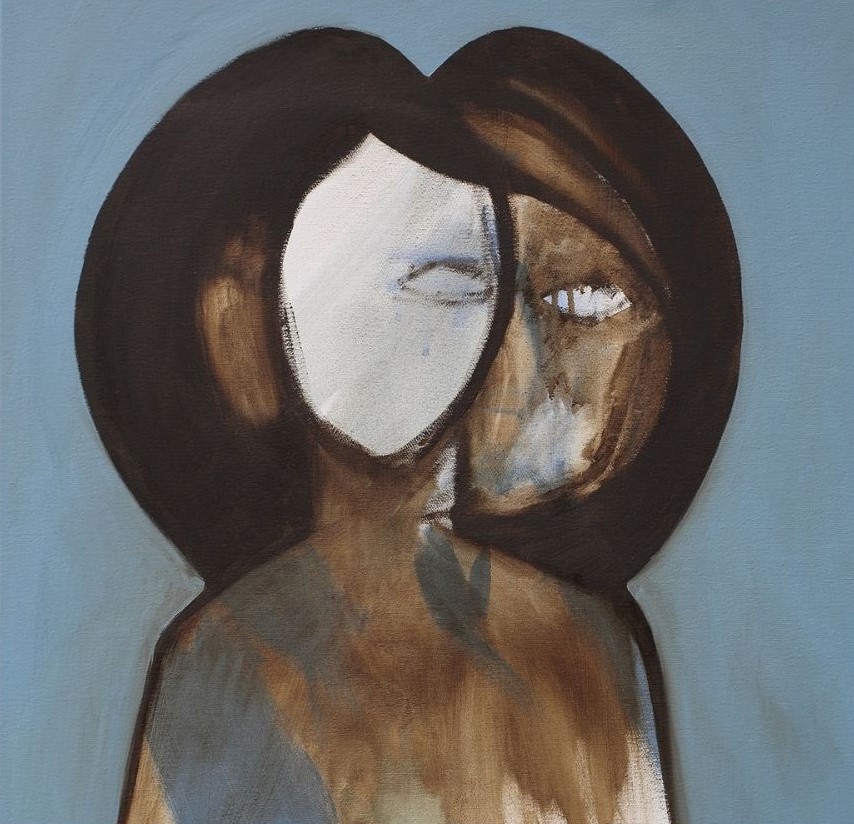Translated from the Macedonian by Ljubica Arsovska and Patricia Marsh

Image used for representation.
The Past Indefinite
Life is everything that happens
between tomorrow and yesterday.
My grandmother with big pans of water
opening the door with her elbow
and closing it with her knee,
so the room, the bread, the hope, don’t get cold.
My grandfather curled up like a baby on the bed
after a day as long as a year in barren fields
in stifling heat which freezes his blood.
My uncle carrying on his black bicycle
the small suitcase with its historical-isms
on which I draw seductive girls
to spur him on to finish his studies sooner
One of my aunts, working three shifts in the mill
grinding away the work hours
with bags under her eyes like the little coffee cups
she bought me to play with on my own,
the other aunt hurrying towards the shoe factory
with plastic bags over her boots in the Skopje winters,
estimating the liquidation of her body with her broken boot zipper
and the liquidation of her soul with her torn bootstrap.
My mother at her typewriter, archiving
my early poems along with the car tires,
while someone adds “doesn’t” to the slogan
written on the city underpass entrance
saying that Auto Tire wishes us welcome.
My father, his face stuck to the window
of the factory bus like a child in an orphanage,
curses, to hell with this life,
but even with the odd quiet moment, hell is still hell.
My sister, jaundice in the whites of her eyes,
throws up the herbal medicine the neighbor
pressed into my hands on my way back from school,
now crammed with people flooded out
by 980 cubic meters of river water per second.
I water the flowers on the balcony,
wipe the lemon and ficus tree leaves
resolutely whispering to them, “One day I’m going to leave this place.”
Now their life is at zero distance
from today to today. I’m no longer its witness,
and neither is it mine.
When I hear someone’s died
I ask what happened to them.
Nothing happens to the others in my presence anymore,
in my absence, everything happens to them.
Now even the most ordinary present tense for me
is nothing but past indefinite.
The Crumbling World
…should be wrapped up in a hospital sheet
and transferred on a stretcher to the palliative care unit
where life expectancy is six months at most,
dignified and peaceful death with pain control.
The window is open, the room is just for one,
pigeons cooing in the garden, lilacs on the small table.
Like in a restaurant kitchen, the sign above the door to the room
says, “Smile,” and all those coming in to visit
have a grin on their faces, although no one feels like laughing
and prefers the coalminers’ ‘Good Luck’ before the pit of death.
The smell of ammonia and iodine, of mandarin, and banana peel,
the evening news on the radio about new wars and financial crises
which don’t affect the patient anymore. But it hurts. In the corner of its conscience
the world knows: even its beauty couldn’t save it, and in vain did the poets
want to change it. And suddenly it feels between the bones and the skin
an amorous craving: for at least one more chance to make love to freedom
which waves to it from the door: “Sleep, I’ll drop by when I can.”
The crumbling world should be left
in the hospice where the angels of life have no intention
of either speeding up or delaying its death.
Equation With Two Unknowns
Let me introduce you to each other,
a mutual acquaintance told us,
and I was no longer x
of no concern to y
who sits next to me on the bus,
waits in line before the same public restroom,
shifts his feet in front of the same counter,
moans in front of the same doctor’s office,
lives on the same street,
walks a dog on the same path,
looks after a child in the same park,
enters the same lift,
buys tickets for the same play,
stands next to me
separated by the barbed wire
between the unknowns
in the equation of life.
But once someone says,
Let me introduce you to each other,
everything is immediately different,
the form opens the content,
the handshake lifts the barrier gates,
we wave to each other across the street,
we walk toward each other with a smile,
the man with a name is no longer a stranger,
if I know him, I can grow to love him,
and also to unlove him,
once known,
forever known,
even if I forget him,
equality is in the equation.
And without introduction to each other,
as in a foreign language textbook
we remain strangers,
we shrink when passing each other,
we walk past each other in silence
eyes down or frowning,
you don’t talk to strangers,
next to each other, we are without each other,
we stare into the solitude
even in the largest crowd.
If we were introduced,
it would immediately be different,
the tap on the connection would be turned on,
the conversation could start flowing,
once we’ve said our names to each other
there’s no barrier between us,
x has become 1, and 1 plus 1 is 2.
And the name bears no importance
in a boundary situation
when your life hangs on a thread
in the middle of a tsunami or a traffic accident,
when you flee down the stairs during an earthquake,
when you run with water into the burning apartment,
when you entreat a perfect stranger with the gentlest words
not to jump off the roof.
At such times, names are not needed
to open the path to intimacy.
But should life always be
a boundary situation
for me not to have to tell you my name,
yet for you to know me and for me to know you
in the equation of existence?
And finally, how do I approach myself?
Who will introduce me to myself,
a double with the same name and surname?
Like when an unknown penfriend wrote to me
when I was a child
and I was summoned
to the principal’s office: Could it be some
anti-socialist move
that Lidija Dimkovska from Prilep
writes to Lidija Dimkovska from Skopje?
There were two of us with one name and one surname,
the form and content of a mutual existence,
until she changed
her maiden name,
and I kept mine
as a memento and a warning
of the equation with two unknowns
in the equality of life.
History
Dead people in living years,
living people in dead years.
Dead people in living decades,
living people in dead decades.
Dead humanities in living centuries,
living humanities in dead centuries.
Each time has unwanted history,
each history has unwanted times.
With its content, summary, and keywords,
history is a paper on life and death.
After the conference, it will be duly published in the proceedings,
which no one will ever read.
Also, read a Hindi fiction by Maitreyi Pushpa, translated into English by Debalina Roy, and published in The Antonym:
Follow The Antonym’s Facebook page and Instagram account for more content and exciting updates.




























0 Comments